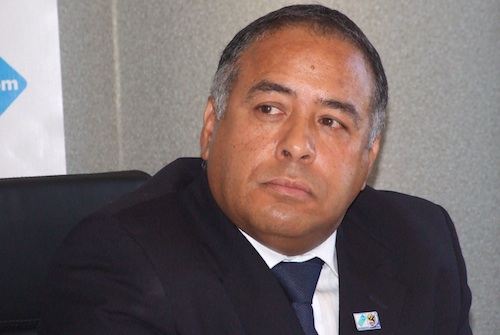Politics. That may be the real reason Telkom CEO Reuben September’s contract is not being renewed when it expires in November. According to well-placed sources, he’s had a troubled relationship with the ANC under President Jacob Zuma after he engineered and oversaw the disposal of Telkom’s 50% stake in Vodacom.
To understand the background, one has to go back to May 2009, to the first few days of the Zuma administration. September was summoned to a meeting with Zuma and told that the deal to sell 15% of Telkom’s stake in Vodacom to the cellular group’s other shareholder, the UK’s Vodafone, had to be stopped.
The big concern among ANC leaders was that the deal, which enjoyed the backing of former President Thabo Mbeki, would benefit the party’s then-new opposition, the Congress of the People (Cope). High-profile figures in the Elephant Consortium, which holds about 7% of Telkom’s shares, had recently defected from the ANC to join Cope.
Union leaders, including Cosatu president Zwelinzima Vavi, were also opposed to the deal, but more for ideological than party-political reasons. Cosatu simply didn’t want Vodacom in the hands of foreign capital.
According to sources, September made it clear that it was too late to back out of the deal with Vodafone. Irrevocable agreements had been signed and the process had already been set in motion that was to result in Vodacom listing on the JSE.
Eventually, Cosatu and a subjugated Independent Communications Authority of SA (Icasa) went to the high court in an attempt to block the deal, a move that sent the rand plummeting. Though government lawyers joined Vodacom and Telkom in opposing Cosatu and Icasa, they had only done so because they were legally obliged to, not because government supported the deal.
Sources say relations between the ANC and September have never fully recovered. This helps explain, in least in part, why relations between September and Telkom’s government-appointed chairman, Jeff Molobela, have been rocky.
Molobela, appointed by communications minister Siphiwe Nyanda, is said to have made life difficult for September and his executive management team, questioning their every move and undermining their decisions. September was a “marked man”, says one Telkom insider.
Another contributing factor to the tensions at Telkom may be the fact that government’s so-called “golden share” in the group — granted to it at the time of listing — falls away early next year. This controversial share entitles government to appoint the group’s chairman and have a say in who gets named as CEO, among other things.
With its expiring next year, government will lose some of its control over Telkom, and so it may be keen to install a more compliant CEO than September before that happens.
And, curiously enough, sources say that the next CEO could be Molobela, the current chairman.
Sources inside the group claim that he wants September’s job. Molobela has declined to be interviewed by TechCentral and all Telkom will say in response to questions about Molobela’s alleged ambitions is that it doesn’t respond to speculation.
However, Molobela is far from a shoo-in for the top position, especially since he has little experience in telecommunications.
Chief financial officer Peter Nelson is regarded as a strong potential candidate, as is Telkom SA MD Nombulelo “Pinky” Moholi. Moholi has decades of experience at the group.
The other potential candidate for the top job is former Cell C CEO Jeffrey Hedberg, who was recently appointed by Telkom to try to fix the group’s deeply troubled Nigerian subsidiary, Multi-Links. He’s considered a bit of a maverick operator, though, so this may count against him, especially if government is keen on a CEO who will toe the line. — Duncan McLeod, TechCentral
- Subscribe to our free daily newsletter
- Follow us on Twitter or on Facebook





